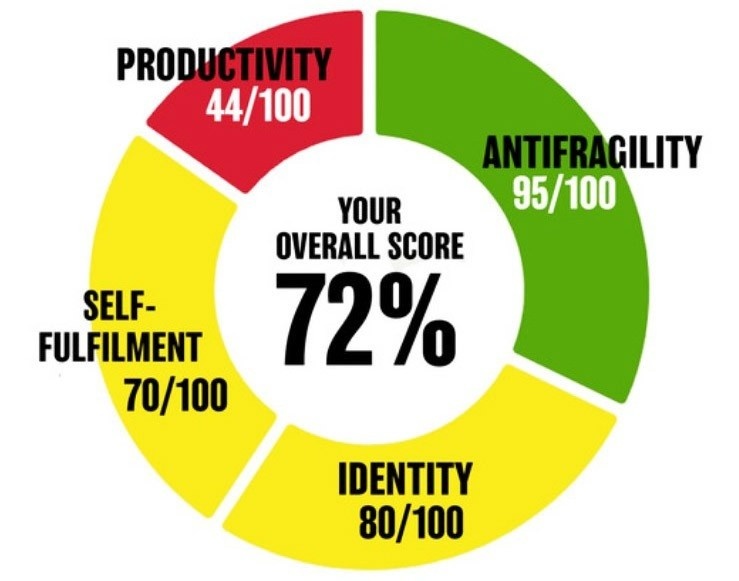6 Things CONFIDENT People Don’t Do // What makes confident people so remarkable? The ability to be confident in any situation, believe in themselves and overcome insecurity are all important but it is also what they don’t do that sets them apart. They avoid certain behaviours to safeguard their self esteem so they can develop the confidence to reach their full potential and become successful in life.
KEY POINTS
Feedback Is The Breakfast Of Champions – Look at feedback as an opportunity to grow. Seek constructive feedback, a confident person wants to constantly know how to improve.
Are You A People Pleaser? – Confident people recognize they cannot be all things to all people. If you are spreading yourself too thin, you won’t be able to deliver your best.
Be Your Own Competition – Instead of constantly seeking the approval of others, seek to improve yourself everyday. Strive to be a better version of yourself tomorrow than you are today!
Do You Play The Blame Game? – Rather than taking on a victim mentality, ask yourself ‘How may I have caused or contributed to the situation that I am in?’.
Challenge Accepted! – Confident people run towards challenges and discomfort. They embrace hardship. Your full potential lies outside your comfort zone!
Don’t Give Up Too Easily – Persist, If you shoot for the moon, even if you miss you’ll still stand among the stars.
TRANSCRIPT
Today, I’m going to take you through six things that confident people just don’t do. And that’s what sets them apart from everyone else. And if you continue to do these things, it’s going to hurt your ability to achieve your goals and dreams because it’s ultimately going to hurt your self-confidence. So, stick around so you can learn the behaviors that you definitely should avoid if you want to become more confident in work and life.
Hi, my name is Eric Partaker, and I’ve been recognized as a CEO of the year. And I’m also the author of two best-selling books, including The 3 Alarms. Now, you might be thinking, “Does this really apply to me? Because I already feel like I’m a quite confident person.” But I guarantee you that you’re doing at least one of these things. Now, the first thing that confident people avoid doing is getting ultra-defensive when challenged.
A confident person looks at feedback as an opportunity to grow. In fact, a confident person seeks constructive feedback. A confident person wants to constantly know how to improve. I’ll give you two powerful questions that can actually help encourage this mindset, and this state, and this way of thinking within yourself.
When you’ve completed a piece of work, bring it to one of your peers, or to one of the people that reports into you, or to a friend, or to a colleague, and just ask them the simple question: “How would you improve upon this?” And then another powerful question that you can ask those around you is: “What can I do to improve?” So, the first is relating to a specific piece of work that you’ve just completed, whereas the second deals with you as a person.
So, get into the habit of actually soliciting feedback. Using those two simple questions, how would you improve upon this for a thing, for example? Or just asking the more general question: “How can I improve?”
The second behavior that confident people avoid is trying to please everyone. Confident people recognize that they can’t be all things to all people. And as a result, they don’t spread themselves too thin. If you are spreading yourself too thin, then you won’t be able to actually deliver your best to all the people in the situations that you’re encountering in the course of your day. So you need to step back and ask yourself, “What are the relationships? What are the situations? What are the activities that are giving me energy, that are helping boost my confidence?”
And then equally, what are the situations, people, activities, or things that are draining you of your energy and your confidence? You can’t be all things to all people, but you can please those that also give you some kind of reciprocation and also help you play to a bigger game, and play to a more confident version of you.
The third behavior that confident people don’t engage in is the need of seeking constant approval and recognition. So, rather than seek constantly the approval of others, ask yourself, “Do I approve of myself on the basis of, am I being 1% just a little bit better today than I was yesterday?” Now, this isn’t to say that it’s not nice to get approval and recognition from others. I’m not saying that at all. Of course, that’s a good feeling and it’s nice to have.
But when we’re constantly seeking it or when we don’t get it, when we feel super bad about ourselves, that’s a red flag behavior. That’s where you need to watch out because you’re going to get onto this hamster wheel of seeking constant validation and recognition. And when it doesn’t come, because inevitably it won’t, it’s going to destroy your confidence. So don’t start there, to begin with. And instead, be competitive with yourself. Seek recognition and approval from within; “Am I being a better version of myself today than I was yesterday?”
Another behavior that confident people avoid is playing the blame game. Rather than taking on a victim mentality or seeking to externalize things not going to plan, confident people ask themselves, “How may I have contributed to this? How may I have caused this? What did I do or didn’t do that could have led to this situation?
They’re taking way more ownership in their life for the results, for the things that they achieved, for the things that they don’t achieve, rather than constantly looking for external reasons. And instead, they’re constantly looking internally; “How can I do better? What could I do? What could I have done differently, such that by doing it, I may not have even ended up in this situation?” So ask yourself.
Do you tend to externalize when things don’t go to plan or do you tend to internalize? And ask yourself to think through, “What could I be doing better or differently, or perhaps more consistently to achieve the results that I seek?”
The next behavior that confident people don’t engage in is being fearful of mental or physical challenges. In fact, confident people run towards discomfort. They embrace challenge. They embrace hardship. They know that their full potential lies just outside their comfort zone, that if they stay where it’s comfortable and they just stay there the whole time, that they won’t grow and develop. Just like if you went into the gym and didn’t really work out properly, you’re not going to grow and develop. Right? If you want to train yourself to run a marathon, you’re not going to get there by just walking a few steps each day, you need to stress your body.
You need to get into that habit of running farther and farther and farther. More challenge applied to the body day after day after day, so that you can be in a position to suddenly fully challenge yourself and run and complete that race. And it’s the same thing with just about any challenge, task, or adversity in life. You have to ask yourself, “Do I tend to run towards that or step away.” Because your path to growth lies stepping outside of your comfort zone, not remaining within.
And last but not least, a behavior that confident people don’t engage in is that they don’t give up too easily. And I want to tell you a story here. We’re going to go back to the 1992 Olympics. An athlete by the name of Derek Redmond was competing in one of the sprints. And shortly into the sprint, suddenly after all these years of training, after all of these hopes to win a medal, and he was actually favored to win a medal in these Olympic games.
Shortly into the race, Derek tears his hamstring, and he drops to the ground and he can’t even move. They come running out onto the track with a stretcher to take him off, but he doesn’t give up. Instead, he grabs the back of his leg. He stands back up, and he starts to hobble. He wants to finish the race. He doesn’t want to give up. And he’s in tears because of the pain.
And then Derek’s father, Jim Redmond, comes running out of the stands and walks alongside his son. And Derek puts his arm around his father’s shoulder, and together they complete the race, Derek in tears and in pain. And he finishes the race last of course, because he had torn his hamstring, but to a standing ovation in the entire stadium. Now, when one door closes another opens, and confident people realize this too.
Because while Derek didn’t achieve his dream of an Olympic medal, so many doors open for Derek after that. He went on to become a professional basketball player. He went on to own a motorcycle racing team. He went on to compete on television in various sporting events. And he even became icon for a series of Nike commercials; all about courage and not giving up in the face of setbacks, disappointments, and hardship.
So, confident people, they do not give up easily. They persist, because as they say, “If you shoot for the moon, even if you miss you’ll still land amongst the stars. And I’d love to hear from you. So don’t forget to leave a comment and a rating as well. And if you’d like to get a copy of my new book, The 3 Alarms, please head over to my website ericpartaker.com. That’s E-R-I-C, ericpartaker.com, where you could pick up a free digital copy of my new best-selling book, The 3 Alarms.




